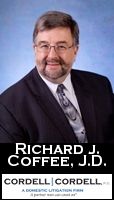Question:
I am representing myself for an upcoming hearing. I want to introduce several documents, audio recordings, etc for consideration. How do I introduce this material as evidence? Does everything that I want to introduce in court have to be sent to her attorney for evidence and fact disclosure?
Answer:
Proceeding to court on a contested evidentiary hearing without a lawyer to properly prepare and present the evidence, as well as to cross-examine opposing party’s evidence, generally will place you at a disadvantage. The rules of evidence are very specific and failure to comply will result in the evidence being excluded or opposing counsel being given a continuance to properly investigate the proposed evidence.
While pre-trial disclosure of proposed evidence to opposing counsel is usually one step in the process, the applicable law and court rules will dictate the specific procedures that must be followed. Whether or not documents or audio recordings will be allowed into evidence in any event also depends upon the reliability as to the authenticity of the evidence and the ability of opposing counsel to cross-examine the evidence.
Objecting to evidence, or responding to objections from opposing counsel, requires specific legal training and a thorough understanding of the evidence, for which you should retain a qualified domestic litigation attorney.
Richard Coffee is a Litigation Manager in the Belleville Illinois office of Cordell & Cordell. He is an experienced divorce attorney whose practice is devoted to domestic litigation. He is licensed in the State of Illinois and is admitted to practice law in the U.S. District Courts for Northern, Central and Southern Illinois.
Mr. Coffee has extensive domestic litigation trial experience representing clients in courts throughout Illinois on all aspects of domestic litigation, including the representation of clients who are current or retired military personnel with issues under the Soldiers and Sailors Civil Relief Act and the Uniformed Services Former Spouses’ Protection Act, clients involved in state court jurisdictional disputes due to the relocation of one or both parties from or to Illinois, and clients with government or private pension benefit valuation and division issues.



Rules Of Evidence
What are the rules of evidence?
The rules of evidence require fact-finding judges or juries to base their decisions solely on relevant evidence that is reliable. Some evidentiary rules are fashioned to further other important policies, such as protecting civil liberties. There are several important rules of evidence.
* Witnesses generally cannot state opinions or conclusions unless they are experts or specially qualified to do so.
* Lawyers generally may not ask leading questions of their own witnesses. Leading questions are questions that suggest the answers desired, in effect prompting the witness. An example is: “Isn’t is true that you saw John waiting across the street before his wife came home?” Lawyers may ask leading questions during cross-examination.
* There is a prohibition on hearsay. Hearsay is what the witness says he or she heard another person say, when the witness is trying to assert the truth of what the other person said. The witness is repeating a statement made by someone else, not what the witness actually personally saw or heard. There are complex exceptions to the rule against hearsay.
American Bar Association Family Legal Guide
Regular poster
So, what are the rules of evidence again?